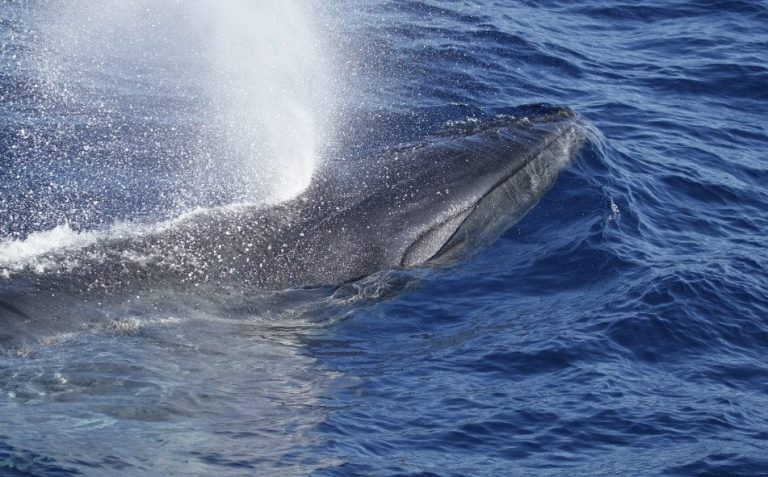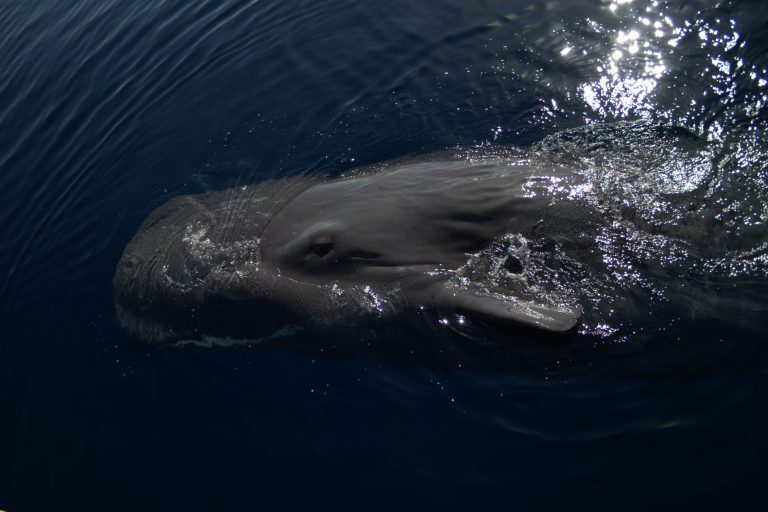
(Physeter macrocephalus)
Sperm Whale

(Tursiops truncatus)
Common Bottlenose Dolphin
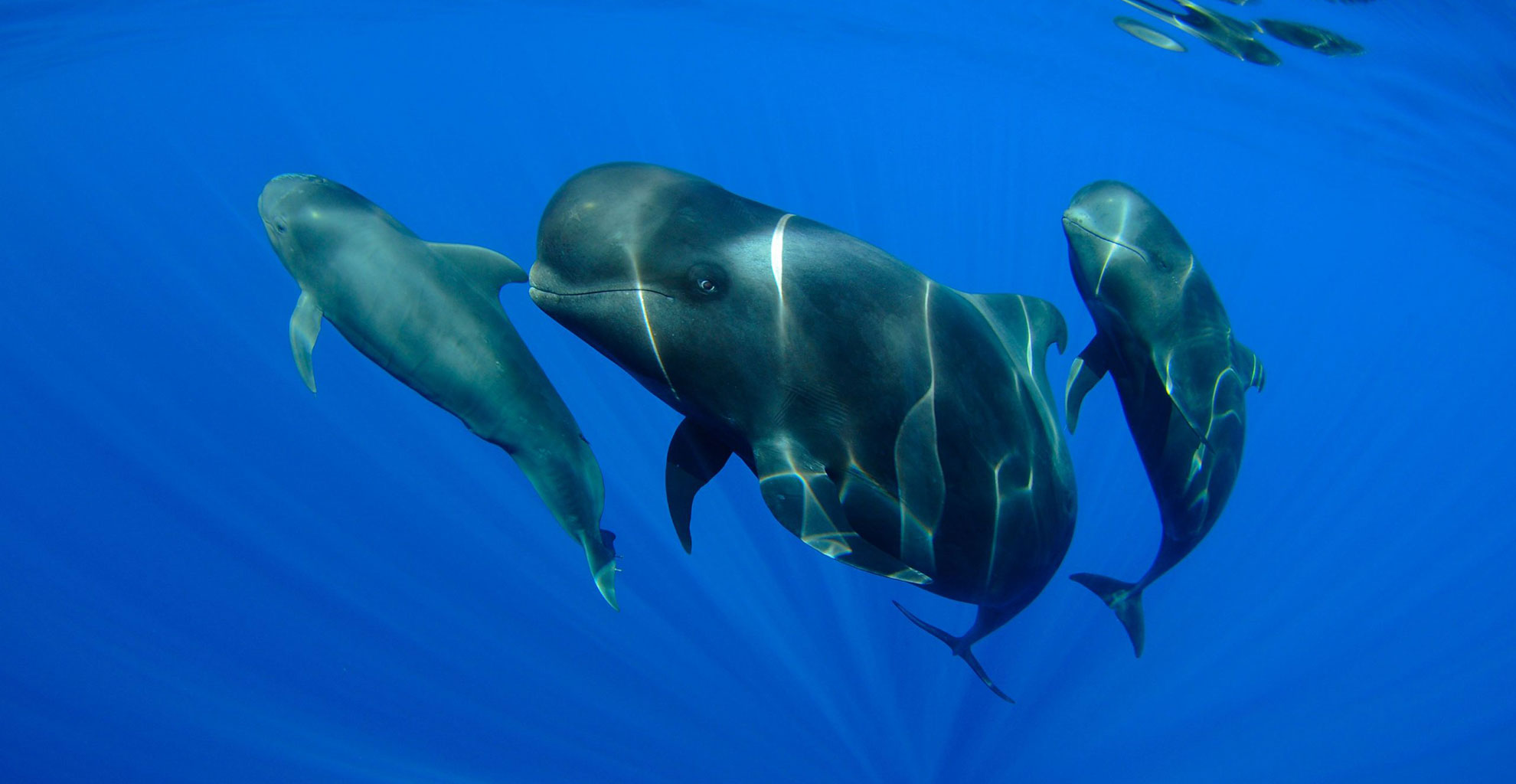
(Globicephala macrorhynchus)
Short-finned pilot whale
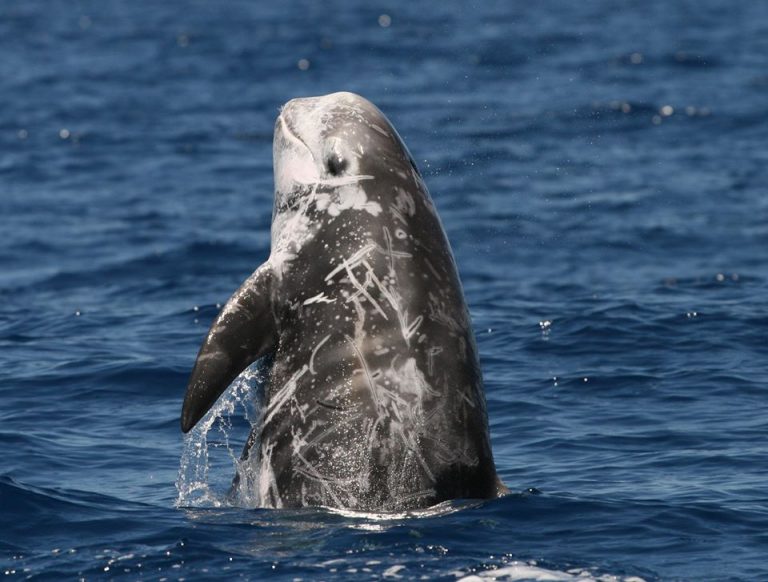
(Grampus griseus)
Risso’s dolphin
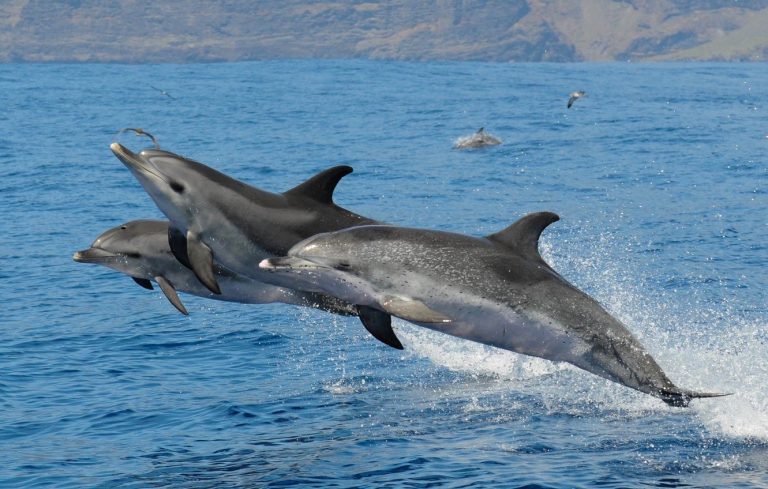
(Stenella frontalis)
Atlantic spotted dolphin
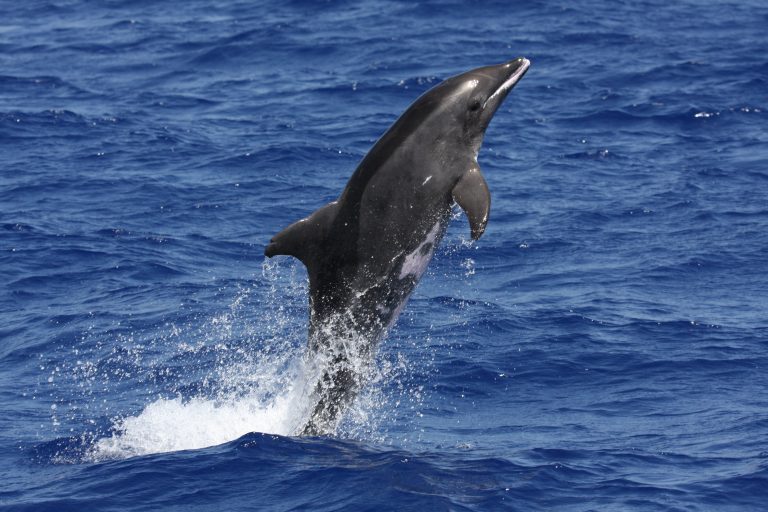
(Steno bredanensis)
The rough-toothed dolphin
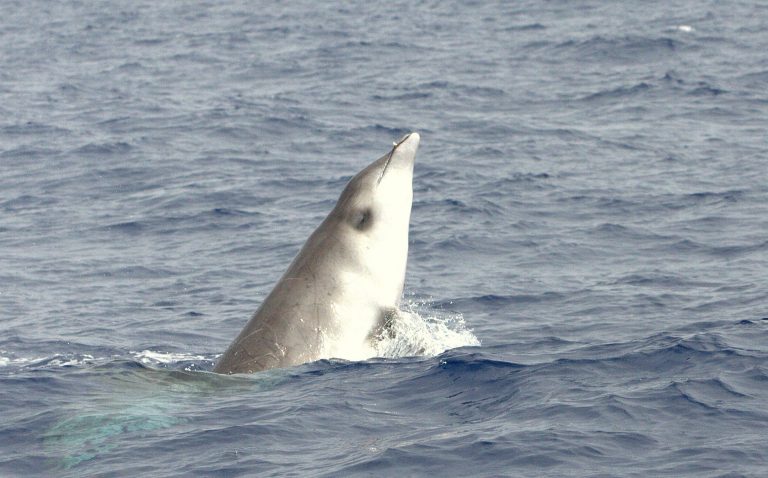
(family Ziphiidae)
Beaked whales
The beaked whales (family Ziphiidae) of eastern Lanzarote and Fuerteventura
The beaked whales (family Ziphiidae) are the most unknown marine mammals due to a combination of circumstances:
1) oceanic and offshore habits
2) capacity for deep diving (more than one hour and 2000 m deep
3) inconspicuous emersions and elusive behaviour with boats
4) apparently small populations
5) extreme morphological similarity of these species that makes difficult the specific determination.
These species are vulnerable to medium frequency naval sonars with high intensity used during antisubmarine naval exercises. On the coasts of Lanzarote and Fuerteventura 8 cases of stranding (known as atypical mass stranding), have been recorded, 6 of which have coincided during the time period and logistical area of the holding of naval exercises. Several of these strandings have been multispecific, simultaneously involving three beaked whale species. Those animals that died, in mass stranding episodes on the eastern islands represent a significant contribution to the total stranding of this species in these islands, so we believe that the impact of this mortality on the populations of these species has been significant. For more than 10 years, SECAC has been developing a project to learn about the distribution, use of habitat, movements, social structure and behaviour of beaked whales in the waters of eastern Lanzarote and Fuerteventura in order to guarantee their conservation. The target species are: the Cuvier’s beaked whale (Ziphius cavirostris), the Blainville’s beaked whale (Mesoplodon densirostris) and the Gervais’ beaked whale (Mesoplodon europaeus).
